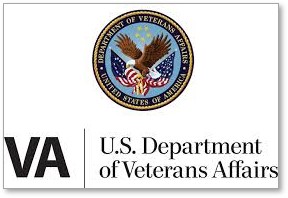Guest Author: Jackie Quinlan
 During the last 13 years in the U.S., around 2.4 million members of the armed forces have left military service to return to life as a civilian. Within the next five years, at least another million will also make this same transition.
During the last 13 years in the U.S., around 2.4 million members of the armed forces have left military service to return to life as a civilian. Within the next five years, at least another million will also make this same transition.
For anyone who has served in the military for a significant amount of time, reintegrating into civilian life can be challenging. But as we welcome home our servicemen and women, most Americans don’t think the U.S. is doing enough to help its veterans.
Transitioning to Civilian Life
A survey into Americans’ attitudes towards government support of veterans found that health care was the main area people believe needs improvement. Many people have the opinion that military personnel are not adequately prepared to be successful in a civilian workforce.
Adjusting to civilian status from uniformed duty is far more than just a change of jobs. It involves a change in nearly every aspect of life, including careers, homes, communities, lifestyle, healthcare, and training. However, data from the Bureau of Labor shows veteran unemployment remains consistently below the national jobless rate, while a series of corporate and federal programs have been introduced to ease the transition from military to civilian life.
Help with Hearing Loss
 There are currently 2.7 million American military veterans living with tinnitus or hearing loss as a consequence of military service. Exposure to loud noise such as a roadside bomb, gunfire or heavy equipment would likely have been the cause.
There are currently 2.7 million American military veterans living with tinnitus or hearing loss as a consequence of military service. Exposure to loud noise such as a roadside bomb, gunfire or heavy equipment would likely have been the cause.
While often overlooked, a loss of hearing or tinnitus is the most common military service-related health issue for veterans. The U.S. Department of Veterans Affairs (VA) provides medical clinics offering a range of hearing services from counseling, testing, implantable devices, and state-of-the-art hearing aids. Veterans can receive low-cost or free hearing health care and may qualify for monthly tax-free payments.
Post-Traumatic Stress Disorder
 Around 30% of active and reserve military personnel have a mental health condition, while many experience post-traumatic stress disorder (PTSD) and depression.
Around 30% of active and reserve military personnel have a mental health condition, while many experience post-traumatic stress disorder (PTSD) and depression.
However, over recent years there has been much in the way of improved understanding of PTSD, which has seen a rise in the availability of treatments for veterans so they can access effective help. More healthcare facilities are now open around the country in response to the need for improved emotional and psychological support following military discharge. But with demand outstripping supply, the high demand for support has meant that many veterans are not able to vital access help quickly enough.
Veteran Suicides
Perhaps the most worrying figures relate to veteran suicide. Veterans have a 22% higher risk of suicide compared to non-veterans. Every 72 minutes a U.S. veteran will take their own life. But despite the rise in veteran suicide, millions of federal dollars allocated to helping suicidal veterans went untouched.
$6.2 million was set aside for suicide prevention outreach. However, the Department of Veterans Affairs’ Veterans Health Administration spent just $57,000, failing to expose at-risk and suicidal veterans to the help and support they desperately need.
Strong Focus
While there is always more the U.S. government and other agencies can do to support military veterans, particularly in regard to suicide prevention, there has been a strong focus in recent years on providing healthcare and emotional well-being support to those discharged from the military.

Thanks for writing about this, it is a subject close to my heart. The short answer is no – the government is not doing all it can. My grandfather, father and mother, brother and son are Vets and their first hand accounts of those who have fallen through the cracks is heartbreaking. Many so-called Veterans support groups are shams, the waiting list for VA housing and medical services is so long many die before they can be helped. I have blogged about this often – keep up the good work!